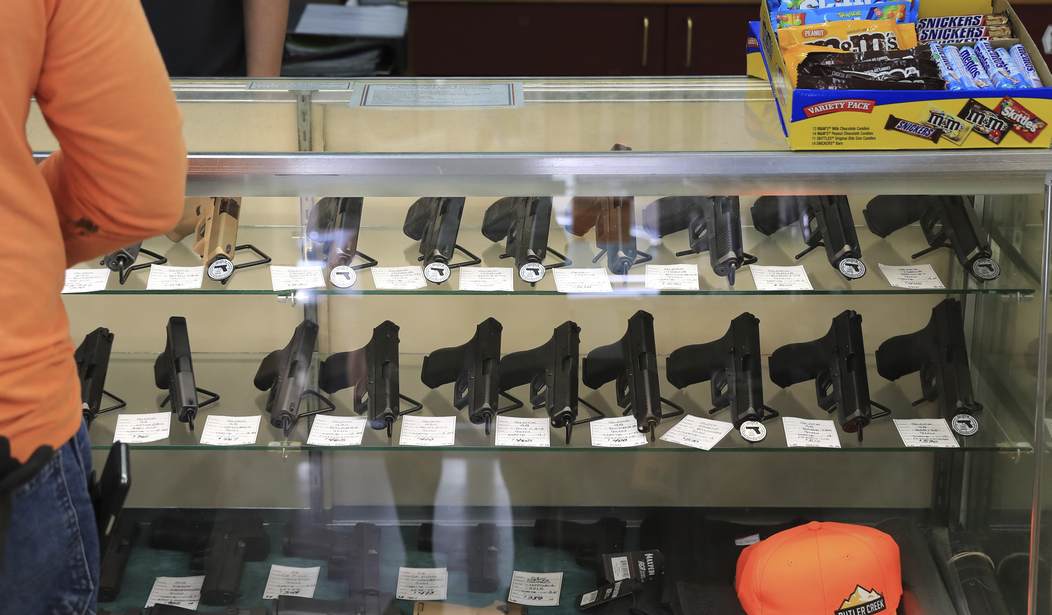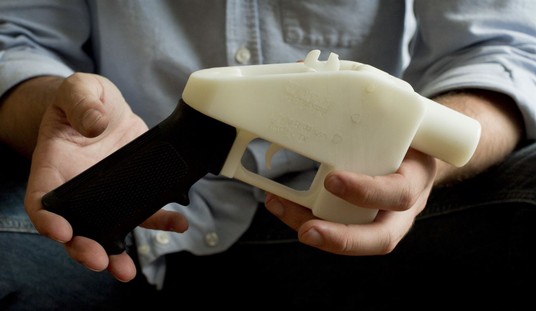At what age do our Second Amendment rights kick in? Under federal law, there is no minimum age to possess a firearm, but there's a two-tiered system in place when it comes to buying a gun from a retailer. Once someone turns 18 they can purchase a rifle or shotgun from a federally licensed firearms retailer, but they're not able to purchase a handgun until they're 21.
In Reese v. ATF, several individual plaintiffs along with the Firearms Policy Coalition, Second Amendment Foundation, and the Louisiana Shooting Association are challenging that restriction on Second Amendment grounds. In late 2022, a federal judge upheld the prohibition on handgun sales to young adults, even though he said the conduct at issue was protected by the text of the Second Amendment. U.S. District Judge Robert R. Summerhays, appointed to the bench by Donald Trump in 2021, went on to say, however, that the ban is "consistent with a longstanding, historical tradition" and upheld the law in question.
The plaintiffs appealed Summerhays' decision, and today a three-judge panel on the Fifth Circuit Court of Appeals heard oral arguments in the case. One of the main arguments deployed by the DOJ attorneys defending the statute revolved around the Rahimi case, where the Supreme Court ruled that a temporary prohibition on the right to keep and bear arms for someone found by a judge to pose a threat to themselves or others isn't a violation of their Second Amendment rights.
While Rahimi was a fairly narrow decision, the Biden administration argued that virtually all young adults are too dangerous to purchase a handgun at retail.
The govt claims that Rahimi supports them because the 18-20 are more dangerous.
— Firearms Policy Coalition (@gunpolicy) September 23, 2024
The judge makes a dismissive joke and says well you know women aren't.
It's true that arrest rates are typically highest for young adults under the age of 21, but it's also true that the vast majority of young adults will never be arrested or even accused of committing a violent crime. Despite that, federal law prohibits every adult younger than 21 from lawfully purchasing a handgun from an FFL.
The DOJ attorneys also decided to try and revise the "text, history, and tradition" test laid out by the Supreme Court in an attempt to show that the ban on commercial handgun sales to young adults fits comfortably within the national tradition of gun ownership.
The govt tries to claim that ONE law in the 1850s is "tradition and history"
— Firearms Policy Coalition (@gunpolicy) September 23, 2024
The problem with that argument is that prohibiting those unnamed groups cited by the DOJ was also likely a violation of their constitutional rights at the time, and most definitely would be seen as a violation of their rights today. No ban on gun sales to Native Americans or Black citizens would be upheld as constitutional, but according to the Biden administration it's perfectly acceptable to bar young adults from purchasing the most commonly-sold firearms in the country.
In my non-lawyerly opinion, the issue here is pretty simple. 18, 19, and 20-year-olds are a part of the political community today, which means they should have access to all of their civil rights. Yes, adults younger than 21 can still purchase (in some states) a pistol in a private sale or be gifted a gun by their parents or guardian, but there are plenty of young adults whose right to keep a handgun gun in their home for lawful purposes is denied to them because of their personal circumstances.
As FPC's attorneys argued today, there's nothing in Rahimi (or Heller, McDonald, and Bruen) that shows "disarming an entire group is acceptable" and there's certainly nothing in the Supreme Court's Second Amendment jurisprudence that justifies the DOJ argument that under-21s are inherently dangerous. The Fifth Circuit Court of Appeals has the chance to undo Judge Summerhays' error by reversing his decision on appeal, and the plaintiffs' attorneys have given the panel all the evidence it needs to do so.









Join the conversation as a VIP Member